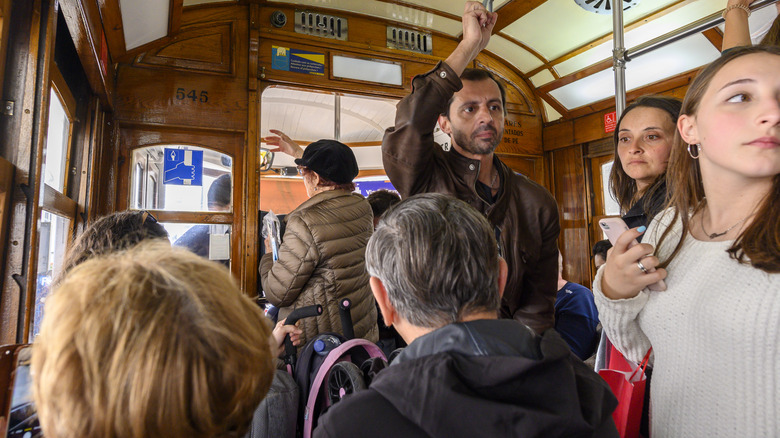Europe offers several unique ways to get around, from the eco-friendly bike lanes of the Netherlands to the famously difficult-to-navigate London Underground. But in Portugal, local transportation is more than a method to get from point A to point B — it’s an attraction on its own.
Visitors to the country’s major cities won’t get too far without spotting a classic trolley-style streetcar. The trams were first introduced to Porto, Lisbon, and other hubs in the late 1800s and originally relied on mules. By the early 1900s, cables and an electric system were installed to power the now-iconic trolleys.
Over a century later, some of Portugal’s streetcars have retained their old-school design, and riding them has become a must-try activity among tourists. Hopping on one of the trams can feel a little like stepping into a postcard — not to mention the windows offer prime views of the local scenery. However, travel expert Rick Steves warned in a video that you could get injured if you get too close while admiring the view outside.
You could lose an arm if you’re not careful

Portugal’s vintage trolleys travel through the city centers, going up and down hills and narrowly weaving through the buildings. This can make riding one feel a bit like being on an urban rollercoaster. With that said, you shouldn’t treat Portugal’s trams as an amusement park joyride, says Steves. The guru on all things Europe shared what he’s learned about the Iberian country, including how to stay safe on the streetcars. Steves noted that the trolleys scrape past the buildings and other structures so closely that you could lose a limb if you try to touch them through the open windows. The outcome could be far worse for those who choose to stick their heads out the sides.
Remember, no view or travel photo is worth the risk. Keep your hands and personal items in the trolley at all times. And on that note, be mindful of the streetcars while outside too. Some tracks are placed mere inches from sidewalks and cafe terraces, and if you don’t pay attention to your surroundings, you could land yourself in a Portuguese hospital.
Thieves are another danger on Portuguese trolleys

Rick Steves exposed another potential danger of riding on Portugal’s trams in a 2017 blog post: pickpockets. Even though Portugal isn’t known for being a pickpocketing hotspot, you can never be too careful. As he wrote, thieves tend to look for victims in places where tourists are known to congregate. In Portugal’s big cities, that can include the trolley cars.
During a trip to Lisbon, Steves explained, his tour guide alerted him to a group of pickpockets on board his tram. The travel expert watched as the thieves observed the other passengers, seemingly preparing to snatch a loose wallet or dangling bag.
Years later, Rick Steves revealed that Lisbon is one of only three destinations where he has been pickpocketed, though it’s unclear if he was targeted on one of the city’s trolleys. Still, his experience serves as a reminder to remain vigilant on public transportation anywhere in the world to protect yourself against pickpockets. Keep items close to your body, remain alert, and watch what’s happening inside the tram just as much as what’s happening outside of it. Trust us: The amazing view will still be there when you exit the car, but your passport and cash might not be.

